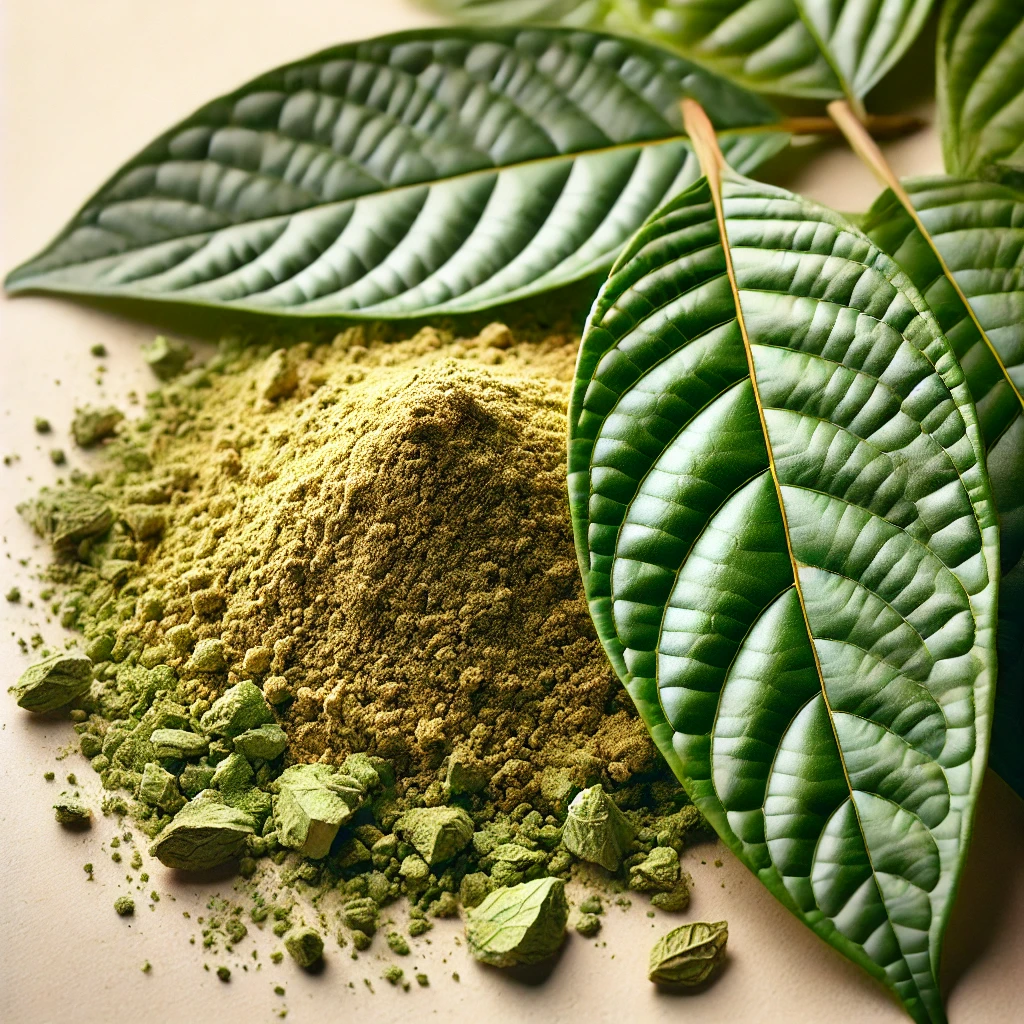Kratom, a herbal substance derived from the leaves of the Mitragyna speciosa tree, has been used for centuries in Southeast Asia for its stimulant and opioid-like effects. Recently, its popularity has surged in the United States as an alternative to traditional painkillers and as a tool for managing opioid withdrawal. However, this increase in use has also led to rising concerns about kratom dependence and withdrawal. For those who rely on kratom and are considering stopping, understanding the withdrawal process is crucial. Kratom withdrawal can be challenging and often requires medical supervision and support.
Mass Tort America is here to help individuals navigating the difficult journey of kratom withdrawal. Our team provides the necessary legal assistance to ensure that those affected by kratom can receive the compensation and support they deserve. With our expertise and resources, we help clients from all over the nation understand their rights and pursue justice against negligent parties.
Understanding Kratom And Its Effects
Kratom contains alkaloids, primarily mitragynine and 7-hydroxymitragynine, which interact with the brain’s opioid receptors. At low doses, kratom acts as a stimulant, increasing energy and alertness. At higher doses, it has sedative effects, providing pain relief and euphoria similar to opioids. This dual action has made it a popular choice for self-medication among people dealing with chronic pain or opioid addiction.
Despite its potential benefits, regular use of kratom can lead to dependence. The body becomes accustomed to the presence of kratom alkaloids, and when use is reduced or stopped, withdrawal symptoms can occur. These symptoms are often similar to those experienced during opioid withdrawal, which can be physically and mentally taxing.
The severity of kratom withdrawal varies depending on the duration and frequency of use, as well as individual differences in metabolism and overall health. Symptoms typically begin within 12 to 48 hours of the last dose and can last for several days to a week. The intensity and duration of withdrawal symptoms can make it challenging for individuals to quit kratom without medical assistance.
What Does Kratom Do To The Brain?
Kratom is a synchrotron containing mitragynine and 7-hydroxymitragynine that produces opioids in the brain. This drug interacts with multiple opioid receptors on the brain, providing relaxing and soothing sensations as well as pain relief. Although kratom has no opiate component like morphine, it can still cause drug abuse as it affects the receptor of the opioid. Generally psychotropic substances such as kratom may cause dependence. Physical and emotional symptoms, as well as withdrawal symptoms, may be caused when a drug is stopped.
Kratom, a psychoactive substance derived from the leaves of the Mitragyna speciosa tree, impacts brain chemistry by interacting with the same receptors targeted by opioid drugs. This interaction can produce stimulant effects at lower doses and sedative effects at higher doses, which can help relieve pain and relieve muscle aches. Due to these properties, kratom is sometimes used by individuals with opioid use disorder to manage physical and psychological symptoms of opiate withdrawal. However, its use is not without risks, as kratom abuse can lead to drug dependence and a range of adverse effects on mental and physical health.
The potential for kratom addiction is a growing concern among medical professionals and regulatory agencies like the Food and Drug Administration and the Drug Enforcement Administration. Kratom is not approved for medical use in the United States, and its safety profile is still under investigation. Users seeking relief from underlying medical conditions may turn to kratom in its powder form, but the lack of regulation and standardization poses significant risks. Psychological withdrawal symptoms associated with kratom abuse can be severe and may include anxiety, irritability, and cravings, making it difficult for individuals to cease use without support.
For those struggling with kratom dependence, addiction medicine and medical detox offer pathways to recovery. Medical professionals often utilize medication-assisted treatment to manage withdrawal symptoms and support long-term sobriety. Treating addiction requires a comprehensive approach, including the use of the Diagnostic and Statistical Manual to diagnose substance abuse disorders accurately. Through proper treatment and support, individuals can overcome kratom addiction and address the underlying issues contributing to their substance use.
Common Symptoms Of Kratom Withdrawal
Kratom withdrawal can manifest with a range of physical and mental symptoms, which vary in intensity depending on the duration and amount of use. The Kratom Withdrawal Timeline generally begins within 6 to 12 hours after the last dose and can last for several days to weeks. Early symptoms often include moderate withdrawal symptoms such as irritability, anxiety, and muscle aches, while severe symptoms may escalate to severe cravings, abdominal pain, and significant stomach discomfort. These symptoms can be particularly challenging for individuals with a substance use disorder, as kratom’s addictive properties make cessation difficult without professional support.
Kratom withdrawal symptoms can be divided into two categories: physical and psychological. Physical symptoms are often the most immediately noticeable and can include muscle aches, sweating, nausea, vomiting, diarrhea, and high blood pressure. These symptoms are a result of the body’s struggle to adjust to the absence of kratom’s active compounds. Psychological symptoms are equally significant and may include anxiety, irritability, depression, and cravings for kratom. These symptoms can be particularly distressing and may contribute to relapse if not properly managed. The psychological aspect of withdrawal underscores the need for comprehensive treatment approaches that address both physical and mental health. In addition to these symptoms, some individuals may experience insomnia, restless legs syndrome, and fatigue. These symptoms can further complicate the withdrawal process and interfere with daily functioning.
The physical and mental symptoms of kratom withdrawal are part of a broader Withdrawal Syndrome that encompasses a variety of mental health symptoms. Users may experience severe depression, mood swings, and anxiety, highlighting how kratom affects brain chemistry similar to other psychoactive substances. These mental health symptoms can exacerbate the withdrawal process, making it essential for individuals to seek a comprehensive treatment program. Although kratom is sometimes used as a dietary supplement to ease opioid withdrawal, it can lead to kratom misuse and potentially dangerous interactions with other substances, increasing the risk of kratom overdose. Effective management of kratom withdrawal often requires a multifaceted approach involving FDA-approved medications and supportive therapies. Treating opioid and alcohol dependence has shown the importance of a structured treatment program that addresses both physical and mental orders. This approach is critical for individuals dealing with kratom misuse and drug and alcohol dependence. By addressing the root causes of addiction and providing appropriate medical and psychological support, individuals can navigate the withdrawal process more effectively and reduce the likelihood of relapse.
Treatment Options For Kratom Withdrawal
Managing kratom withdrawal typically involves a combination of medical supervision, behavioral therapies, and support groups. Medical detoxification is often the first step, where healthcare professionals monitor and manage withdrawal symptoms to ensure the safety and comfort of the individual. Medications may be prescribed to alleviate specific symptoms, such as anti-nausea drugs, pain relievers, and sleep aids.
Behavioral therapies, including cognitive-behavioral therapy (CBT) and motivational interviewing, can be effective in addressing the psychological aspects of withdrawal. These therapies help individuals develop coping strategies, manage cravings, and build motivation for long-term recovery.Support groups, such as Narcotics Anonymous (NA), offer a community of individuals with shared experiences, providing emotional support and encouragement.
It’s also important to address any underlying conditions that may have contributed to kratom use, such as chronic pain or mental health disorders. Comprehensive treatment plans that include medical care, psychological support, and social services can improve the chances of successful recovery and reduce the risk of relapse.
Is Kratom Withdrawal Dangerous?
Kratom withdrawal can indeed be dangerous, especially for those with a kratom use disorder. The effects of kratom on the brain’s chemistry are significant because it interacts with the same opioid receptors targeted by addictive substances like opioids. When a person stops using kratom abruptly, the absence of these interactions can lead to severe physical and psychological symptoms. These symptoms may include intense cravings, anxiety, depression, muscle aches, and insomnia, posing a considerable risk to the individual’s overall health and safety. While kratom withdrawal is generally not life-threatening, it can be extremely uncomfortable and difficult to manage without proper support. The intensity of symptoms can vary widely, and in some cases, severe dehydration from vomiting and diarrhea can occur, requiring medical intervention. Additionally, the psychological symptoms of withdrawal, such as depression and anxiety, can be particularly challenging and may require professional treatment.
The risk of dangerous withdrawal symptoms is heightened in individuals with underlying mental disorders or mental illness. Withdrawal can exacerbate existing mental health conditions, leading to a worsening of symptoms such as severe depression, anxiety, and even suicidal thoughts. The combination of kratom withdrawal and mental health disorder can create a challenging situation that requires careful management by addiction treatment professionals. It’s important for individuals considering stopping kratom use to seek medical advice and support. A healthcare professional can provide guidance on managing withdrawal symptoms and create a safe and effective tapering schedule if necessary. Attempting to quit kratom abruptly without medical supervision can increase the risk of severe withdrawal symptoms and complications.
Effective addiction treatment for kratom withdrawal often involves a comprehensive approach that addresses both the physical and psychological aspects of withdrawal. Medical professionals may use FDA-approved medications to help manage symptoms and reduce the risk of complications. Additionally, therapy and counseling are essential to help individuals cope with the mental health challenges associated with withdrawal. In summary, kratom withdrawal, while not typically life-threatening, can pose significant challenges. Proper medical and psychological support is essential to manage symptoms and support a successful recovery. Understanding the risks and seeking appropriate care can make the withdrawal process more manageable and improve the chances of long-term success.
Why Choose Mass Tort America for Your Case?
At Mass Tort America, we understand the challenges faced by individuals dealing with kratom withdrawal and dependence. Our experienced team is dedicated to providing the legal support needed to hold responsible parties accountable and seek compensation for those affected. We offer comprehensive services to guide you through the legal process and ensure your rights are protected.
Choosing Mass Tort America means you benefit from our extensive experience and resources. We have a dedicated Concierge Team to assist clients from all over the nation, ensuring you receive personalized attention and support throughout your case. Contact Mass Tort America today at 800-356-4338 or visit our contact form at https://masstortamerica.com/contact/ to get started.



















